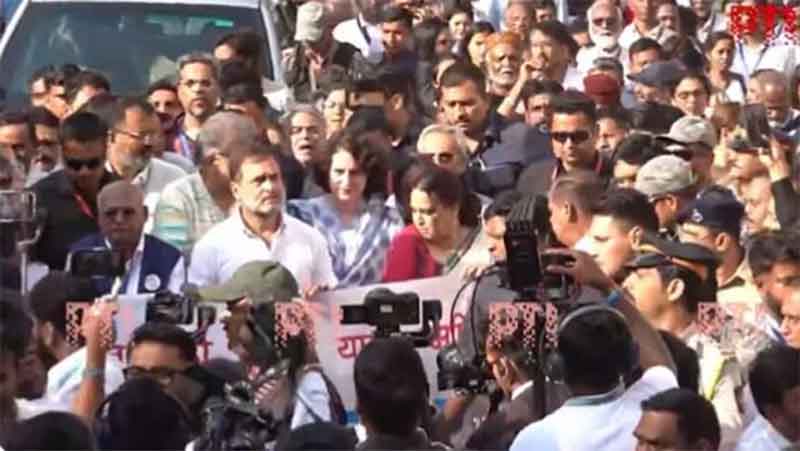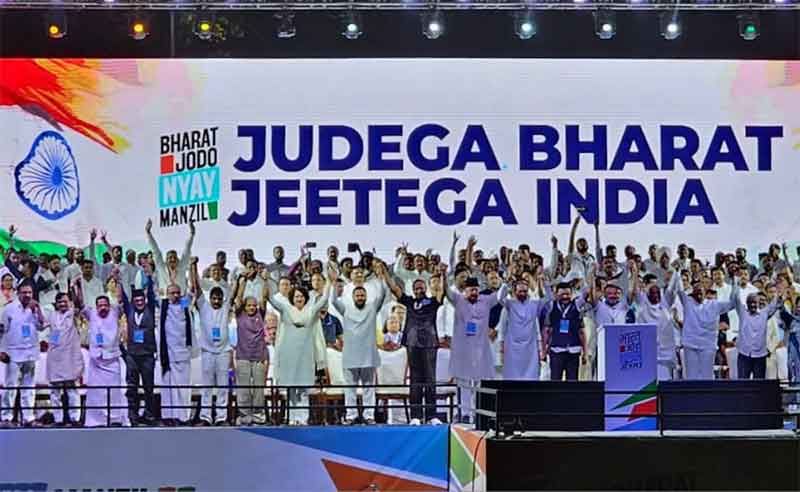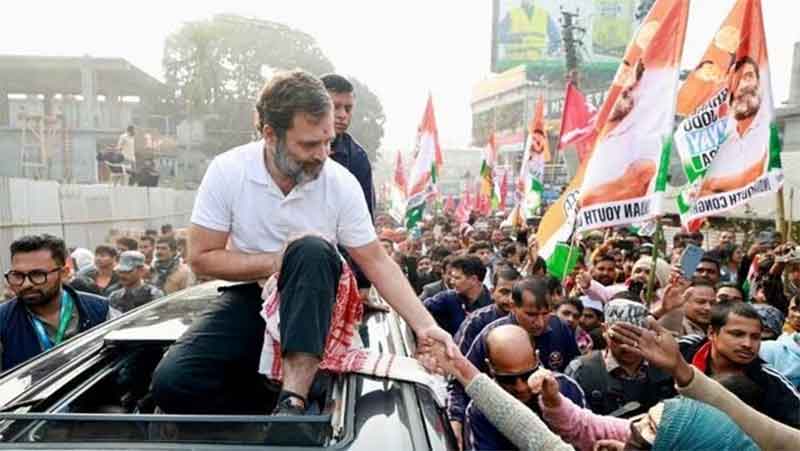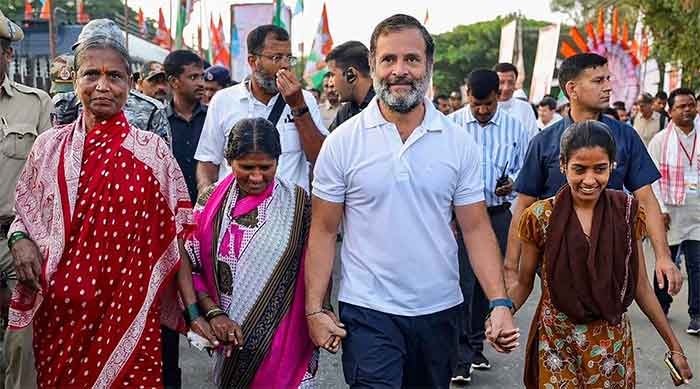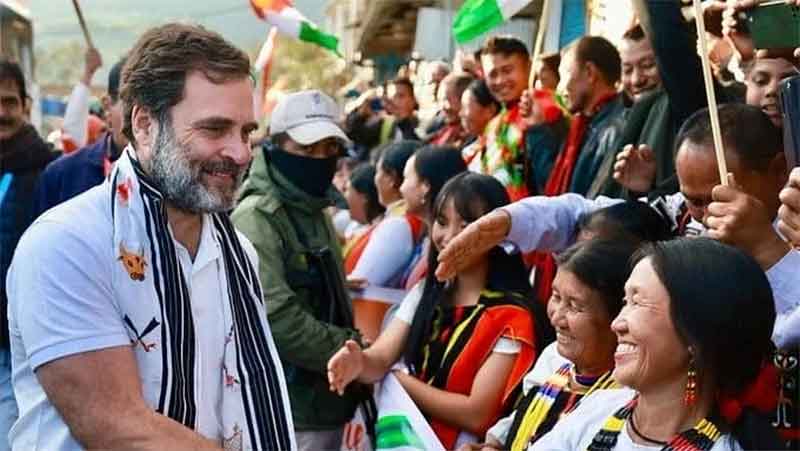
As massive propaganda and mobilization for Ram Temple inauguration on 22nd January is on and there is a need to introspect on India’s democratic and secular ethos. We recall that soon after we got independence there was a demand from some quarters that Somanth Temple, plundered by Mahmood Gazni in the eleventh Century, be restored by the Government. Nehru writes in his book that “he and Patel also approached Mahatma Gandhi for the reconstruction of the temple, but Gandhi was of the view that the government itself should not make any contribution in the form of money for the same.” On similar lines Nehru, the then Prime Minister advised the President Dr. Rajemdra Prasad not to inaugurate the Temple in his official capacity as the President of India. And then Nehru went on to build the ‘Temples of Modern India’: dams, public sector industries, health infrastructure, educational and research institutions.
The democracy of the country got strengthened through ‘one person one vote’. Social movements of workers, peasants and other sections of society boosted the democratic space and values. Barring the interlude of Emergency the country moved in a direction of gradually strengthening the democratic norms till the temple movement undermined the very ‘Idea of India’ which had emerged with the freedom movement. The planned installation of Ram Lalla Idols in Babri Mosque and refusal of the Collector of Faizabad, K. K. Nayyar sowed the seeds of the issue, which was to emerge as the major threat to values of Indian Constitution.
The well planned demolition of Babri Mosque on 6th December paved the way for the Grand Ram Temple which is coming up now. The political party, which is ruling today, has not only focused on emotive issues, but has also been restricting the democratic spaces of the country. The very person who played a leading role in Ram temple movement Lal Krishna Advani has called the present times as undeclared emergency. Overall as emotive issues rule the roost and democratic aspirations, aspirations for better living conditions are bypassed by the Government. We are living in dismal times where the rising prices and worsening indices of livelihood are breaking the back of average people.
Where is the hope for better future, future making the path of ‘Idea of India’, which was the core spirit of freedom movement, which was the dream of the likes of Bhagat Singh, Subhash Bose, Gandhi and innumerable leaders who sacrificed their lives for the country?
Some glimpses of the latent democratic strengths have been seen in the last few years. As the three oppressive farm laws were introduced, the farmers in large numbers marched to Delhi and stayed put for months, sacrificing nearly 600 of their colleagues in the struggle. They did prove the democratic movements can shape the future of the society as the farm laws were withdrawn. Then we saw the shrewd move of the Central Government in the form of CAA, NRC to disenfranchise a large section of Muslim population. To oppose this there came up the remarkable Shaheen Bagh movement, to show that democratic struggles make the country and can influence the future of India.
The summation of the anguish of people came up in the form of ‘Bharat Jodo Yatra’ (Unite India March) a year ago. It gave the message of unity of the country, cutting across different religions and ethnicities. It transformed the social atmosphere of despondence into one of hope and drew the attention of the nation towards the real issues of the society, the issues related to hunger, shelter and employment among others. The response of people was as if they had been waiting for such an event to happen so that they can express their pain and deprivations in a democratic way. The hope for the inclusive society with earthly needs got rekindled and a new ground for national dialogue emerged.
This did make its mark but the communal forces have by now made very efficient machinery for spreading its propaganda related to the divisive issues, issues which have nothing to do with the real problems of survival of the people. So the Ram Temple inauguration is being projected as the big event. All wings of RSS Combine are putting their energies to mobilize the people through ‘Akshat’ (sacred yellow rice) as an invitation to take part in the programs around Ram Temple inauguration. The plans for running extra buses, trains are in the offing to hog the whole national attention to Lord Ram’s temple.
While one is waiting for 22nd January when Prime Minister Modi will be putting life (Pran Pratishta) in the idol of Lord Ram, another event is already underway. That is ‘Bharat Jodo Nyay Yatra’, from Manipur to Mumbai from 14th January to 20th March. This hybrid (foot and bus) yatra began from Manipur, the state neglected by the Central Government, the state which has been suffering from ethnic violence for the last over seven months. The response to yatra from the people of Manipur is overwhelming.
This yatra is going to focus on Nyay (Justice) as we see injustice all around. The Yatra’s focus is on unemployment, farmer’s issues, rising poverty, the dignity of women and rights of Adivasis. This is probably the best possible way to highlight the issues of people in the democratic way. While most of the media is gaga around the Ram Temple issue, the need is to spread the message of this yatra far and wide. The Ram Temple issue is the agenda of RSS-BJP and is strengthening authoritarian politics; the Bharat Jodo Nyay Yatra is articulating the values related to Constitutional morality. It should not be seen as a program of any particular party. It is the summation of the expressions of needs and rights of diverse sections of society. It is an attempt to snatch the democratic space from the jaws of communal polarization being heightened by a particular formation which is out to achieve Hindu Rashtra in place of inclusive India.
Yatras in India have played important roles in preserving the inclusive values and reaching the message far and wide. In current times when the mechanisms of dissemination of thought and political values are being controlled by the retrograde political formation, this Yatra for justice for all the sections of society comes like a breath of fresh air, to kindle the lamp of Indian Nationalism.

